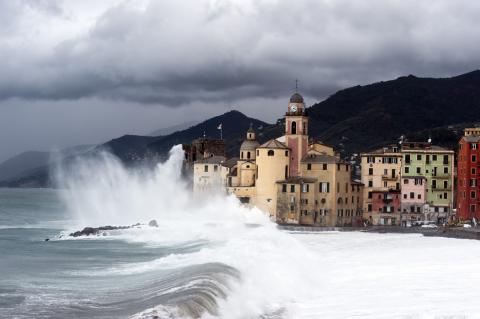Reactions: The main current system of the Atlantic Ocean could collapse in the middle of the century
The Atlantic Meridional Circulation (AMOC), a large system of ocean currents that transports warm water from the tropics to the North Atlantic, could collapse around the year 2050 with serious consequences for the climate, according to estimates by researchers at the University of Copenhagen (Denmark). The IPCC considered a complete collapse unlikely during the 21st century. The results are published in the journal Nature Communications and the authors do not rule out that this collapse may be partial.

Niklas Boers - AMOC EN
Niklas Boers
Professor of Earth System Modeling at the Technical University of Munich (Germany)
I do not agree with the outcome of this study. While the qualitative statement that the AMOC has been loosing stability in the course of the last century is true and supported by the data, uncertainties are too high to reliably estimate a time of tipping. In particular, the uncertainties in the heavily oversimplified model assumptions by the authors are too high. Moreover, the uncertainties in the underlying datasets are huge and would make the extrapolation carried out by the authors far too uncertain to actually report a year or even a decade for the AMOC tipping.
Rahmstorf - AMOC (EN)
Stefan Rahmstorf
Head of Earth System Analysis of the Potsdam Institute for Climate Impact Research & professor of Physics of the Oceans at Potsdam University
The work by Ditlevsen & Ditlevsen fits in with earlier studies looking with somewhat different methods and data sets at the issue of early warning signals.
The new paper comes to similar conclusions: there is still large uncertainty where the tipping point of the AMOC is, but the new study adds to the evidence that it is much closer than we thought just a few years ago.
As always in science, a single study provides limited evidence, but when multiple approaches lead to similar conclusions this must be taken very seriously. Especially when we're talking about a risk that we really want to rule out with 99.9 percent certainty. The scientific evidence now is that we can't even rule out crossing a tipping point already in the next decade or two.
Peter Ditlevsen & Susanne Ditlevsen.
- Research article
- Peer reviewed
- Modelling



